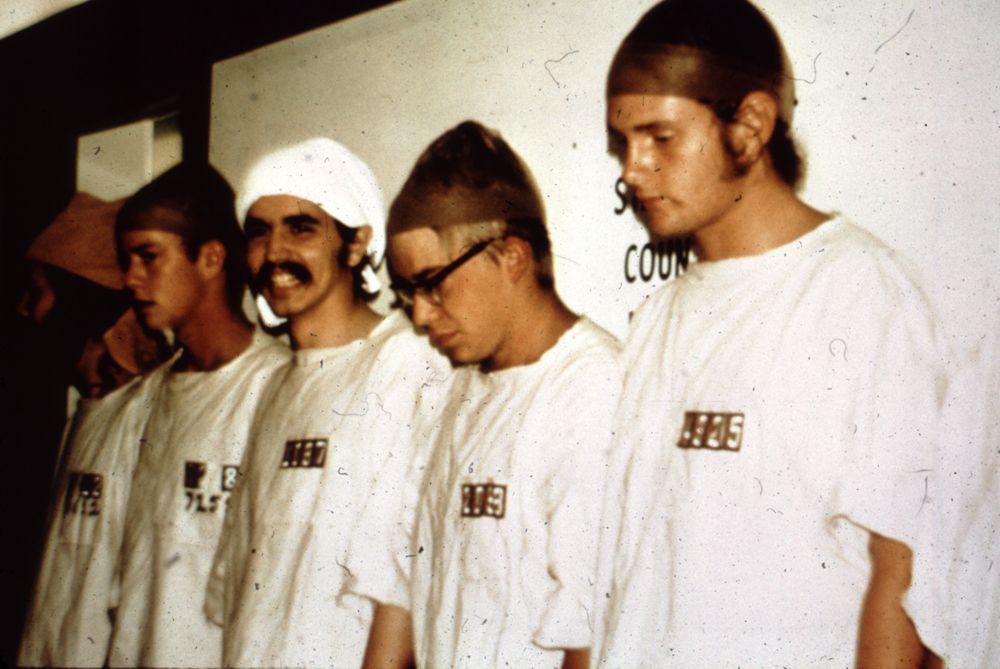Our next experiment in psychology is going to be the Stanford Prison experiment. This is another one of the most famous experiments in psychology. Are humans naturally predisposed to evil behavior because of their personality or is it situational? This is what Zimbardo wanted to figure out.
He built a prison in the basement of Stanford University. This is where the experiment was going to take place. He asked for volunteers for his experiment and interviewed them thoroughly. The point of this was to eliminate anybody with mental health issues and see who was able physically and mentally for the job. This left him with 11 guards and 10 prisoners who were getting paid $15 a hour.
After being blindfolded and driven to Stanford University, they were randomly assigned to either the role of prisoner or guard. It is important to note that the volunteers did not know each other, they were completely picked randomly. The volunteers were treated as if they were prisoners. They were finger printed, stripped and searched, and all their belongings were taken away from them. As for the guards, they were given identical clothing and had a whistle around their neck. The guards were told to give the prisoners pointless tasks and to do anything they felt was necessary to maintain order.

image via simplypsychology.com
Slowly but surely this started the process of deindividuation. They were identified as numbers and not their names. These volunteers slowly started to lose the true sense of themselves as individuals and their personal responsibilities. Instead they began to think as a whole.
The power of authority came into play next. The same volunteers that were not of any violent nature when being interviewed slowly started to change. These guards started to torture the prisoners and harass them. The prisoners were dehumanized. In this, learned helplessness was formed. They played the role of prisoners, were treated like prisoners, so they eventually adapted to the role.

This experiment was eventually shut down because multiple prisoners faced mental health problems. Prisoners would start to cry helplessly in their cells. Prisoners were told to leave the experiment, but they didn’t want to because it made them look like a “bad prisoner.” This got so bad that Zimbardo had to tell one of the prisoners that he was not a number and said his real name. This experiment left some of the prisoners with psychological damage.
This experiment is one of my favorites because it goes to show how people conform to stereotypes. You could be the nicest person but if you are put in a situation where you are forced to assert power then that eventually changes your personality. As you can see the belief that evil behavior is a predisposition doesn’t apply to this situation because none of the volunteers had violent background before participating in this experiment. It was because of the situation that they were put in that then lead them to behave in ways that they would not in their daily life. Many people often have the notion that they know themselves and their tendencies, but how would you really know until your beliefs are challenged?
This is one of my favorite experiments of all time! It’s fascinating to me what hindsight does for us in terms of our endeavors with experimenting with our mental state. I’ve always been torn between two ideas about this one. On one hand, I’m not sure whether we would have ever been able to gather such a distinct conclusion by other means; on the other, I’d love to see some manner in which we could find a way to study human hierarchies and oppression humanely (although, oppression on its own is pretty inhumane, right?).
This is one of my favorite experiments conducted in the psychology field and I enjoyed learning more information on it and hearing another view on the experiment. I personally think that the experiment was completely immoral, but the results that were brought out by the experiment proves that people conform to stereotypes when put in positions of power.